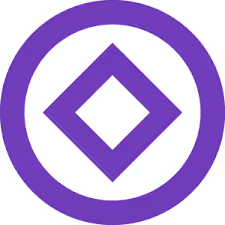
KwikPik
KwikPik is a Web3-based on-demand delivery and services platform built on the Hedera blockchain network primarily focused on burgeoning markets in Africa and the Middle East. It was founded in Nigeria in 2022 to address a critical gap in reliable, efficient on-demand services, particularly in less densely populated regions.
The platform offers a comprehensive suite of services including swift package delivery, convenient grocery and food ordering, direct sourcing of fresh farm produce, and accessible ride-hailing. At its core, KwikPik deeply integrates Hedera technology and employs the Hedera Consensus Service (HCS) to create auditable, immutable logs for tracking driver journeys, significantly bolstering transparency, reducing fraud, and providing verifiable data for carbon emissions tracking for ESG reporting.
KwikPik’s native stablecoin, $KPL, is built upon the Hedera Token Service (HTS). This facilitates exceptionally low-cost, real-time in-app payments and provides users with intuitive, non-custodial Web3 wallets, simplifying their entry into the digital economy. This allows KwikPik to operate as an efficient decentralized physical infrastructure Network (DePIN), designed to deliver reliable, secure, and scalable services, thereby fostering financial inclusion, expanding market access for local businesses, and generating employment opportunities across its operational areas.
Project Information
Related Projects

docStribute is a UK-based technology company that provides a secure and auditable solution for the distribution of sensitive documents. Founded with the goal of revolutionizing business communication, docStribute leverages distributed ledger technology to offer a more secure and efficient alternative to traditional methods such as email.
The company's core service is a document distribution platform that allows businesses to send documents of any sise with an immutable, auditable trail. When a document is sent through docStribute, a unique digital fingerprint of the document is created and recorded on a public ledger. This provides a verifiable record of when the document was sent and by whom, without storing the document itself on the blockchain. It’s designed to be user-friendly and to integrate with existing business workflows, offering features such as real-time tracking, delivery confirmation, and tamper-proof security.
docStribute's platform is built on the Hedera network. It uses the Hedera Consensus Service (HCS) to create a secure and transparent log of all document transactions.

HashPack is a leading non-custodial wallet specifically designed for the Hedera Hashgraph network. It provides integrated interaction with the HBAR and Hedera Token Service (HTS) tokens, as well as with non-fungible tokens (NFTs) and decentralized applications (DApps) within the Hedera ecosystem.
It is available as a browser extension (with support for Chrome), a desktop application supporting Windows/Mac, and mobile apps for iOS and Android. HashPack offers a suite of features tailored for Hedera users including native HBAR staking, an in-wallet NFT gallery, multi-account support, and address books. Security is a key focus of the HashPack wallet, with users retaining full control of their private keys which remain encrypted on their devices. It also supports integration with hardware wallets such as Ledger and D'CENT for added security and offers biometric security features on its mobile apps.
HashPack facilitates interaction within the Hedera ecosystem through its DApp browser, connecting users to DeFi protocols, NFT marketplaces, and other decentralized applications and supports in-wallet swaps via integrations with decentralized exchanges on Hedera, such as SaucerSwap.

HashSea is a dedicated NFT marketplace and launchpad platform operating on the Hedera blockchain network. It provides a space for creators and buyers to mint live, purchase assets on secondary market or create their own NFT assets while engaging with the other digital assets native to the Hedera network.
As a marketplace, HashSea facilitates the discovery, purchase, and sale of Hedera NFTs, leveraging the network's high throughput and remarkably low, predictable transaction fees. Meanwhile, functioning as a launchpad, HashSea empowers creators by offering tools and services to easily mint and debut new projects directly to the Hedera ecosystem. This dual role positions HashSea as a key enabler for both established and emerging artists and developers looking to capitalize on Hedera's efficient, carbon-negative infrastructure.
HashSea’s utilization of the Hedera Token Service (HTS) allows it to offer features embedded features such as native, enforceable royalties for creators and near instant transactions. It supports the HashPack wallet for minting, listing, and trading NFTs on the Hedera blockchain network.

Bitcarbon is a digital asset created by Diamond Standard, founded in 2018. Bitcarbon functions as the governance token for the "Carats" ecosystem, which is a system of commodity tokens backed by physical Diamond Standard Coins and Bars held in secure vaults.
The core product is a fungible and transparent diamond commodity, which is tokenised to create liquidity in the previously illiquid diamond market. Each "Carat" token represents a fractional ownership of a Diamond Standard commodity, providing a trustless store of wealth that can be used for payments. The Bitcarbon token, in turn, governs the Carats smart contract and earns revenue from the transaction and custody fees generated by the Carats ecosystem. This creates a unique digital asset that is intrinsically linked to the value and utility of a physical, real-world asset.
Bitcarbon and the entire Diamond Standard ecosystem are deeply integrated with the Hedera network. The company uses the Hedera Token Service (HTS) to mint and manage its digital assets, including the tokens that represent ownership of the physical diamond commodities.
